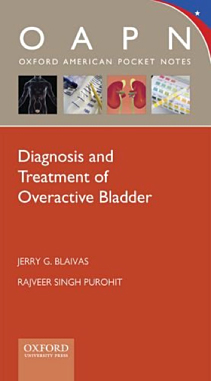Bladder Control Problems After Prostate Surgery
Bladder control or urinary incontinence after prostate surgery is very common. Fortunately after a matter of weeks, the majority of patients’ issues resolve naturally. Dr. Jerry Blaivas, explains ways to deal with the issue during those weeks and what to do if the symptoms do not subside.
Jerry Blaivas, MD: Urinary incontinence, which is not being able to control the urination, is very very common after prostate cancer surgery. Fortunately, in a vast majority of patients, over time that symptom gets better. So the treatment really depends on where the spectrum you fall.
Immediately after the surgery, most people cannot control their urination and the best way to manage that for the short-term is to simply wear some kind of absorbent pads that you can get from any drug store. After a matter of weeks or months if it is not getting better, then we need to have a better understanding of what the causes are.
Overwhelmingly, the most common cause of incontinence after prostate cancer surgery is what we call sphincteric incontinence.
Sphincteric incontinence means that the muscles that were in the wall of the prostate that ordinarily kept the urethra closed, have either been completely or partially removed or damaged.
Okay, so if my fist is like the bladder and my thumb was like the urethra and this would be the tip of the penis where the urine comes out, my knuckle is approximately where the prostate would be. When your doctor did the surgery, he cut out the prostate, so he cut out from here to here, and then he sewed it back together.
When he made this incision here, he does so based on the prostate where the prostate in the cancer ends. He does not have much control over where he can cut. He must cut out all the prostate or the cancer.
This sphincter muscle is in the wall. This sphincter muscle is supposed to keep the urethra closed so no urine can leak out and sometimes usually when they cut out the prostate, they cut out part of sphincter with it. The remaining part of the sphincter is what would ordinarily keep you continent, keep you from leakage.
If too much was cut out then you may never regain continence. If part of it was cut out then you probably will regain continence over time and fortunately, the vast majority of patients do regain continence over time.












